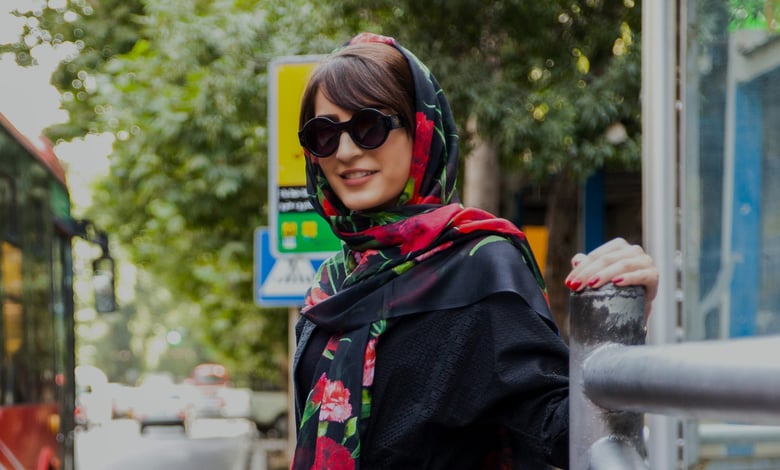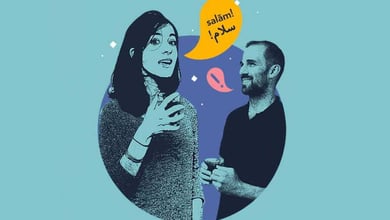English in Iran: Language Barrier or Bridge?

When visiting a foreign country, travelers usually use English to communicate with others. Yet, not everybody is an English speaker! So, what about Iranians?
English has somehow became the international language. Yet, not everybody is an English speaker! So, what about Iranians? Do they speak English or not? And will you struggle to communicate with them during your trip to Iran? Let’s find out the answers in this article.
When you speak with travelers that visited Iran, you may have different feedbacks regarding how much Iranians speaks English. It all depends on the way they traveled and the type of people they meet. Take me for instance. The first time I visited Iran, I met a lot of young people and I traveled to the most touristic places. Based on this experience, I could communicate with a lot of people in English. Indeed, most young people in cities are able to speak English. If not fluently, well enough to speak to travelers. Same goes with guesthouses and hotels’ owners.
But not only do they know a bit of English, but Iranians, especially the younger ones, are eager to practice it! Combined to the fact that they love meeting foreigners, you may meet a lot of people who simply wants to hang out with you, to get to know you and speak English. And that’s what made my first trip smooth and easy.

Another interesting fact, is that there is a lot of English language written everywhere in Iran. Not only signs but also most products in supermarket have both Persian and English written on them. While such thing would be strange in many European countries, here it is very common. It can be explained by the fact that many products are imported. But not only Many Iranian made products are also written in English, but also it is a marketing strategy, because anything that is non-Iranian is usually perceived as having a better quality or being more fancy. Whatever the reason, it’s a great help for travelers who can’t read the Persian script!
Yet, if you can find English on a shampoo bottle, there are also often none where there should absolutely be! For instance, it’s common that there would be no English explanation in a touristic sites or a small museum. Menus in restaurants are also often written in Persian only. It’s one of Iran’s many paradoxes!
Contents
How to communicate without common language
The second time I visited Iran, I decided to travel to less touristic places. And this time, I realize that English wasn’t so much spoken. Indeed, as soon as you travel to more rural places, even younger generation do not speak English. So taking the bus, the taxi, ordering food: every little thing requires some strategy to find a way to communicate. And actually it’s not just Iranians who may not speak English. I have been in touch with a lot of travelers who were not able to speak another language than their mother tongue. Yet, they successfully manage to visit Iran as where there is a will, there is a way!
One of the best ways, of course, is to arrange the service of a guide before. You can find great tourist guide all over Iran, speaking any language you want. Having a guide will not only break the language barrier, It’s also a great way to discover things you wouldn’t be able to do by yourself, and to have valuable insights about the Persian culture.

If you don’t have a guide with you, you for sure have your phone! Internet has truly changed the way we travel and is also of a great help with it comes to communicate with others. I can recall many times where Google Translate was a guests between me and my newly met Iranian friends.
That’s not the easiest nor the fastest way to communicate, but that is often sufficient to navigate your way through. With the application, you can also download dictionary so that the translation be done offline (good when there’s no internet signal) and you can even scan images to get them translated!
But eventually, what makes the communication easy in any circumstances is simply Iranians themselves and their extreme kindness. They will always find a way to help you and they will even often invite you to their house, even when they don’t speak your language.

What other languages Iranians speak?
You’d be surprised how good Iranians are at speaking foreign languages. Actually, it’s common that they speak another language or dialect besides Persian. The reason is that there are many different ethnic groups in Iran and they all have their own language. There is Kurdish (and many Kurdish dialects), Azeri (from the Turkic language family), Balochi (also spoken in Afghanistan and Pakistan), Arabic… According to some studies, there would be up to 86 different languages currently spoken in Iran!
And it seems that Iranians have a real interest in learning foreign languages, probably because it is something that is valued since a long time in the Iranian society. The former king of Iran, Mohammad Reza Pahlavi, would spoke fluent French, German, and English. Nowadays, English is of course the first language to be learned in Iran, like many other countries in the world. But there are also numerous Iranians speaking German, Italian, and also French.

The reasons to learn these languages are often different. Iranians generally learn German and Italian for the same reason as they learn English: to study abroad in these countries. As for French, it is more about cultural reasons. In the past, the first foreign language taught at school would not be English, but French.
It is no longer the case, but many Iranians like to learn French for their interest in French literature and French culture in general. Eventually, most Iranians are also able to understand a few Arabic, as they learn it at school during Quran classes. Yet, it is not practical Arabic and to find real Arabic speakers, travelers must go south, in Khuzestan, West Azerbaijan and Hormozgan provinces, where Arabic is spoken by part of the population.
Read More



